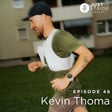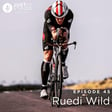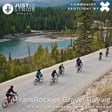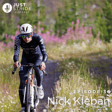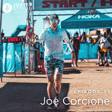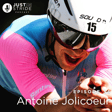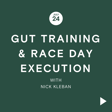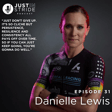
Fuel for Thought Series: Fueling For Maximum Performance with Nick Kleban
You may be asking yourself why this episode is titled “Fuel for Thought”. Any guesses?
I mean if you know me, you know I love a good old play on words, hence the name of this new series that I’ve produced with Xact Nutrition.
Athletes train for hours, work with coaches on technique, join workout groups and sign up for big challenges but one of the things we feel could be overlooked by athletes that is so critical, is education regarding nutrition and how it helps you perform.
So we’ve put together a multi episode series to discuss specific topics pertaining to just that,
in hopes that you come away with more in depth knowledge and a better understanding of nutrition.
On this episode of Just In Stride, Fuel for Thought Edition, we digest high fuel consumption for better performance with Elite Cyclist, Nick Kleban.
Nick is notoriously known for how many carbs he can consume per hour, leaving little doubt that he has enough fuel to support his max effort.
We go in depth into hourly carb intake, different ways to consume fuel, time between feeding, signs you might be low on energy, how to recover from bonking and so much more. I have a gut feeling this will be the perfect crash course to high fueling and that it will leave you more energized than before.
Some topics we cover:
-Min and Max fueling consumption
-Fueling schedule
-Different ways to consume fuel
-Ideal to mix and match different types of fuel
-Troubleshooting due to lack of fuel?
-Signs your are low on fuel
-How to reset when our body is rejecting fuel?
-Lessons learnt from poor fueling?
-Fuel consumption 101
-------
Offer from Xact Nutrition: This episode is presented by our friends at Xact Nutrition and they are offering you 15% OFF your order when you use the code JUSTINSTRIDE. So head to xactnutrition.com and fuel your goals today! Now shipping in Canada and the U.S.
Thanks for tuning in to the Just In Stride Podcast. I truly appreciate you taking the time to listen and I hope you enjoyed that conversation as much as I did. Please take a minute after this to rate and review our show on Apple Podcasts. With your feedback we’ll be able to make the show even better and it’ll help us reach new listeners too. You can also find us on Instagram @justinstridepod and YouTube @justinstridepod for all the latest episodes and updates. Glad you came along for the ride with Just In Stride!


